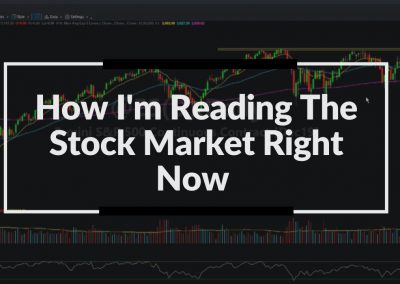If you are someone who is interested in learning how to invest, then looking for a knowledgeable financial advisor is a logical place to begin. Financial advisers have a significant understanding of the industry and are also among the best equipped to help you reach your financial goals.
Currently, it is estimated that there are roughly 300,000 financial advisors to choose from in the United States. Some of these financial advisors are associated with a specific bank or firm and others operate independently.
Naturally, these advisers may have significantly different policies regarding how to invest your wealth. The choice you make in a financial advisor is incredibly important and one that should certainly be taken seriously.
The financial adviser that is right for you will depend on a number of different variables. Your current wealth, budget, and risk preferences are just a few of the things that should be considered. By taking the time to compare multiple different financial advisers, you can be significantly more confident in your final decision.
This article will briefly discuss the different things you should look for in a financial adviser and how you can effectively discover the financial adviser that is best for you.
Make sure that they are sufficiently qualified
The primary purpose of hiring a financial adviser is to have someone who will not only educate you about how to invest but will also make decisions on their own. This means that you should look for someone who can be as objective as possible when weighing possible investment options.
The most important qualification you should look for in a financial planner is if they are a CFP (Certified Financial Planner). By being certified, you can be much more confident in their ability to make decisions and work within the legal framework of the market. You may also want to look for other things such as various “Series” qualifications that allow them to sell and trade certain assets.
The best financial planners will likely have a degree in Finance or Economics in addition to ample experience in the field. Reading third-party reviews, asking for referrals from friends, and visiting their website can help you narrow down your options.
Investigate your financial advisors pay structure
Another very relevant component of the financial planning industry is payment. Currently, there are many different payment structures available and each has various pros and cons associated with it.
Some financial advisers prefer to be paid via commissions. Usually, this will involve them trading and investing for free and earning a portion of whatever money is earned. This particular payment structure helps create an active interest in the overall performance of your portfolio. However, this can also lead to situations where your financial adviser (or broker) may make decisions that are too risky.
Many financial advisers simply require a flat fee in order to get paid. Flat fees can help reduce the risk of a broker making overly aggressive decisions, but they also may cause them to put less thought into their advice. Other advisers may use a payment model that is a hybrid; this will usually involve charging a small flat fee in addition to a small commission charge. Regardless of which payment type you are most comfortable with, this is something that is important to discuss in advance.
Determine your personal level of involvement
Another important variable that can vary between financial advisers is your level of personal involvement. While some financial advisers assume that they know how to invest far better than you do, others are willing to let their clients get more involved. As is the case with all things in the financial world, both ends of the spectrum have obvious tradeoffs.
If you are someone who is well informed about investing, then you may want to assume a larger role in the decision-making process. Having an input into how your wealth is allocated can be incredibly valuable.
Other individuals prefer to take a more “hands-off” approach to wealth management. Because your financial adviser is certified, they naturally can function as an authoritative source on the subject. The best financial advisers are the ones who are willing to ask you what your preferences are.
Check for a compatible risk preference
One of the most important terms in the financial planning industry is “risk preference.” Individuals who are risk tolerant are the ones who are willing to lose their wealth in order to accumulate significantly more. Individuals who are risk-averse are the ones who are willing to accept lower gains in exchange for financial security.
When comparing potential financial advisers, it is a good idea to ask about whether they are risk tolerant or risk-averse. Advisers who are risk tolerant are more likely to encourage you to invest in stocks, real estate, gold, and other speculative assets. Those who are risk averse will likely encourage investments in bonds, life insurance, 401 (k), IRAs, and elsewhere. Working with someone who has a risk preference similar to your own can be very beneficial.
Be willing to ask plenty of questions
If you are comparing multiple potential financial advisers, it is often a good idea to create a “short list” and then conduct some interviews. After speaking with your potential choices about their experience and approach to investing, you should be able to find the one that is best for you.
- Are you a certified financial planner?
- What strategies do you suggest for effectively allocating wealth?
- How long have you worked in the industry? What is your education and background?
- Why should I choose you to be my financial adviser?
- Do you consider growth or security to be more important? What do you do to balance these objectives?
These are just a few of the questions you can ask to get a better understanding of your options. The best financial advisers will not only explain how to invest, but they will also help explain the principles that enable successful investing.
Conclusion
Your choice in a financial adviser will ultimately be a very personal decision. If you are able to consider each of the things mentioned in this article, making a final commitment should be significantly easier. With a good financial adviser, you can be one step closer to financial freedom.











